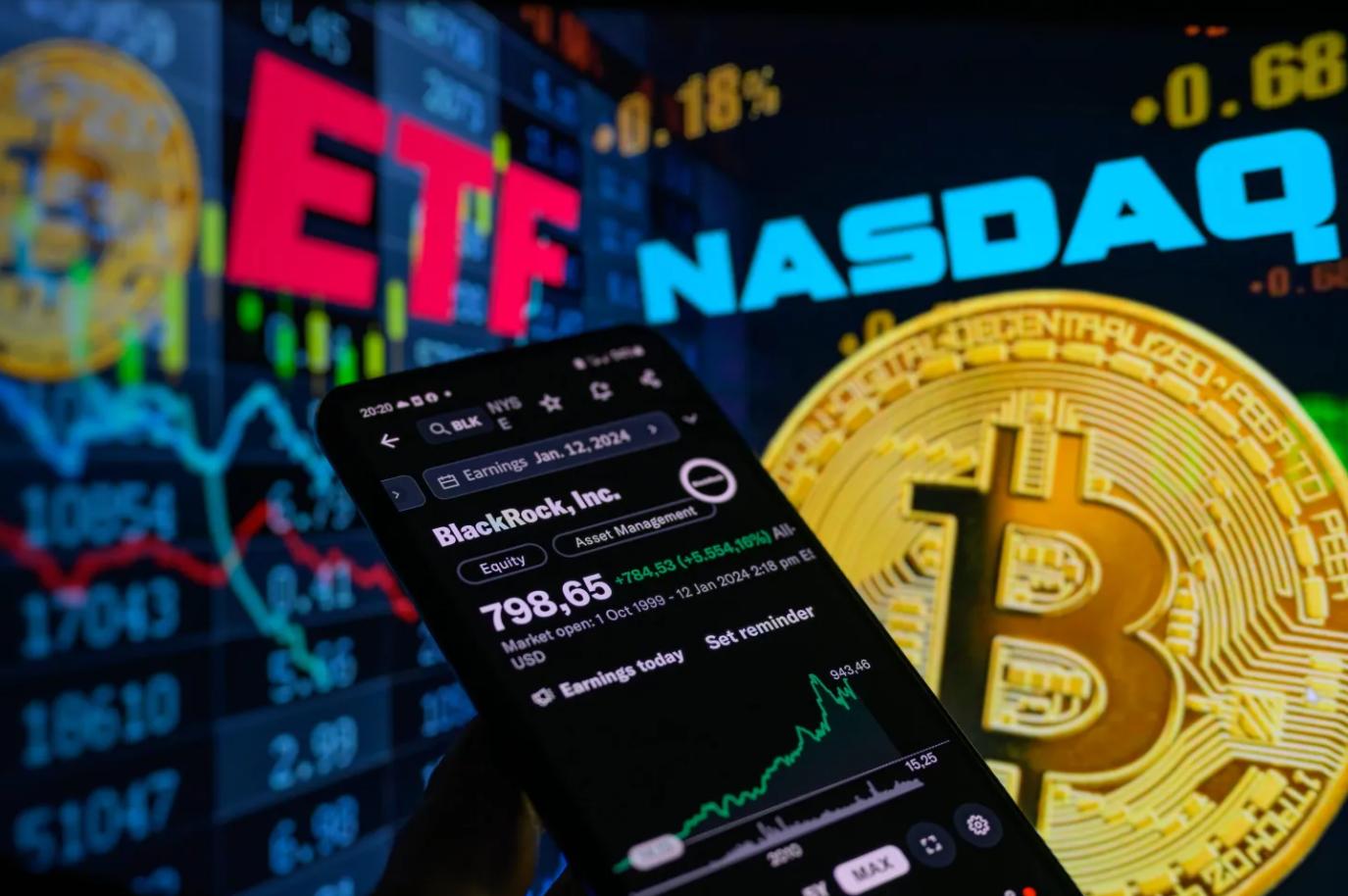Filed Pursuant To Rule 433
Registration No. 333-275079
February 5, 2024
It took a decade for spot Bitcoin ETFs to be approved. How much longer for options?
BYNIAMH ROWE February 2, 2024 at 6:00 AM EST

Investors are now holding their breath to see if, and when, BTC ETF options gain regulatory approval.
JONATHAN RAA—NURPHOTO VIA GETTY IMAGES
Investors may have to wait until the year’s end, or even 2025, to trade options on spot Bitcoin exchange-traded funds, industry experts have told Fortune.
The Securities and Exchange Commission’s approval of spot ETFs last month was a decade-long fight and a turning point for crypto, as retail and institutional investors now can gain exposure to Bitcoin without holding the underlying asset. Ten funds have been trading since the Jan. 11 approval.
That same month, the Nasdaq, CBOE, and NYSE Arca all filed 19b-4s for SEC approval to allow for the trading of related options, according to notices on their websites. (None could be reached for additional comment.)
Investors are now holding their breath to see if, and when, such options are approved. That’s because options on ETFs would add to their “Swiss Army knife appeal,” Bloomberg ETF analyst James Seyffart told Fortune, making the them “better vehicle choices” for the investment thesis of traders, long-term holders, and tactical investors alike. The SEC could respond as soon as this month, he added.
“My expectation,” Seyffart said, “is that they’re just going to move and get this done. I don’t expect it to be a huge battle.”
Even if SEC Chair Gary Gensler pushes back? “I would love to see the denial letter,” Seyffart added.
But the agency may not be in a huge hurry because, unlike the ETFs battle, it doesn’t have the final word. While the ETFs themselves may be considered securities, the underlying Bitcoin is still deemed a commodity. This means any options may need a green light from the Commodity Futures Trading Commission, which oversees commodity derivatives. That’s if the Options Clearing Corporation, which clears options for exchanges, applies for a CFTC exemption to clear and settle commodity-based products.
The SEC declined to comment when reached by Fortune. The CFTC and OCC didn’t immediately respond to requests for comment.
“The process is convoluted,” said Seyffart, who estimates a best-case scenario for overall approval to be toward the end of this year.
‘They want the market to settle’
Terrence Yang, managing director of Swan Bitcoin, says he doesn’t see SEC approval coming “anytime soon,” estimating the end of the year at the earliest. “They want the market to settle and find its footing,” he told Fortune.
By this, Yang’s referring to his anticipation of Bitcoin price volatility over the coming months due to periodic dumps of Grayscale’s GBTC each time Bitcoin climbs. “The SEC is smart enough to know that inflows and outflows are not that stable,” he said. “They might want to wait a while before they offer yet another product.”
Geoff Kendrick, head of crypto research at Standard Chartered, doesn’t see an approval by the SEC happening this year. Gensler will “kick the can down the road,” ahead of the November election, he said. Even if the Democrats win, Gensler’s term in office will end by January, and Kendrick thinks he’s got his eye on Treasury secretary. In other words, he’ll want to cement his tough-on-crypto legacy in the final months of his term.
Like Yang, Kendrick thinks Gensler also could cite Bitcoin’s price volatility. There’s also counterparty risk and Bitcoin’s lack of liquidity.
“If you’re [trading options] in a type of market that is not liquid, where there’s not enough buyers and sellers, you’re moving the market, which is really bad, because you’re affecting the price,” says Yang.
“And the counterparty risk is all over the place,” he adds. Trading Bitcoin ETF options would involve the issuer, the authorized participants, and the custodian, which for many of the ETFs is Coinbase. “That’s risky, because you’re relying on one custodian.”
Assuming the SEC does approve the instruments, they may also require CFTC and OCC approval, although sources told Fortune they don’t expect major pushback. The CFTC is “usually much more lenient than the SEC,” added Yang.
But that is still not a guarantee.
The CFTC never signed off on a 2010 application by the OCC to clear options on a pair of physical palladium and platinum ETFs, postponing a decision dozens of times, regulatory filings show. And for the first gold-backed ETF, the SPDR Gold Trust, which launched in 2003, the CFTC didn’t approve the trading of options of it until 2008.
But Seyffart thinks that kind of delay is unlikely, adding, “There is nowhere near the level of interest, demand, and eyeballs on those types of products as there are on the Bitcoin ETFs.”
Grayscale Bitcoin Trust (BTC) (the “Trust”) has filed a registration statement (including a prospectus) with the SEC for the offering to which this communication relates. Before you invest, you should read the prospectus in that registration statement and other documents the Trust has filed with the SEC for more complete information about the Trust and this offering. You may get these documents for free by visiting EDGAR on the SEC Web site at www.sec.gov. Alternatively, the Trust or any authorized participant will arrange to send you the prospectus (when available) if you request it by calling (833) 903 - 2211 or by contacting Foreside Fund Services, LLC, Three Canal Plaza, Suite 100, Portland, Maine 04101.
